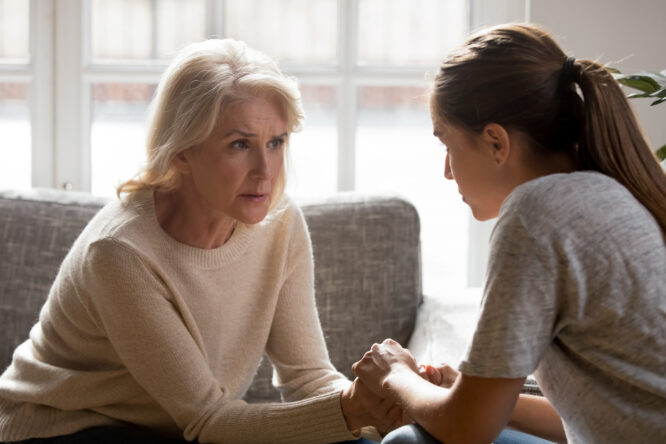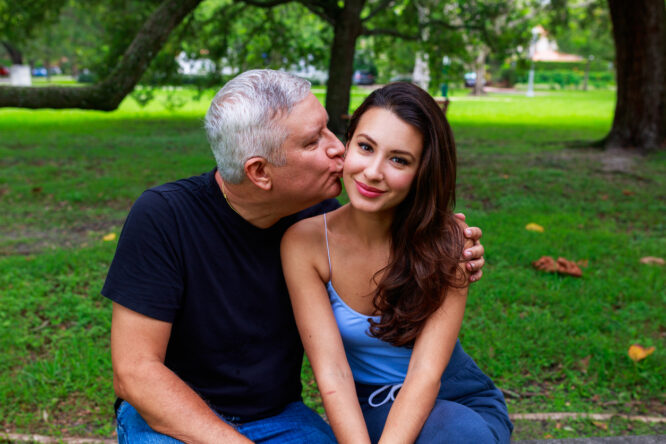Breakups are always awkward, but queer breakups come with their own brand of weird.

It’s not just about the heartbreak—it’s about still seeing them at your friend’s dinner party, sharing a group chat, or knowing they’re the only person who really understood that one part of you. Queer relationships can feel extra intense, and when they end, things don’t always fall apart neatly. Here are just some of the ways these splits tend to hit differently, and what can help when you’re navigating all the weirdness that comes with them.
1. You’re probably still going to run into them… a lot.

In queer circles, it’s not unusual to share mutuals, events, or even living spaces. So unlike some straight breakups where you can just block and disappear, you might still be bumping into your ex at open mic night or someone’s flatwarming. It makes moving on trickier, but not impossible. Give yourself permission to duck out of things if you need to, and don’t feel guilty for creating some space, even in a shared scene.
2. There’s pressure to be the “mature queer exes who stay friends.”

Some queer circles really push this idea that staying friends is the evolved, community-minded thing to do. Of course, not every breakup leaves room for that. Sometimes you just need distance. You don’t owe anyone a friendship badge. If being around your ex makes you feel worse, it’s okay to take a break, or step away entirely. That doesn’t make you immature. It makes you honest.
3. The relationship wasn’t just romantic—it felt like home.
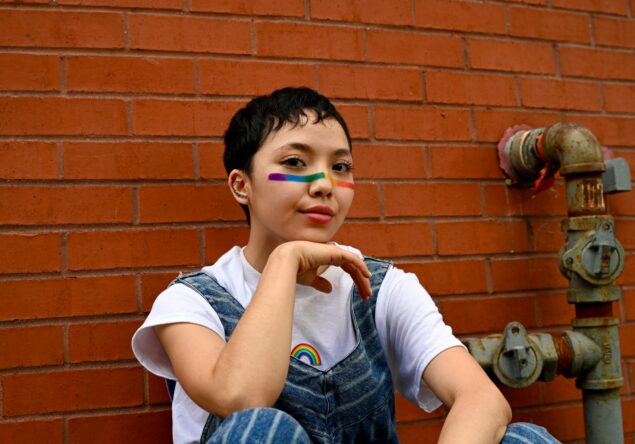
When you’re queer, your partner often becomes your safe place. Someone who gets the things you used to hide from the world. So when it ends, it’s not just about the romance ending. It’s like the floor drops out emotionally. You might feel unanchored or weirdly exposed. That’s not clinginess, though. It’s your nervous system adjusting to losing a source of comfort. Be gentle with yourself while you rebuild that safety elsewhere.
4. You might’ve looked up to them in a way that complicates the breakup.

Sometimes one person is further along in their queer journey, and the other leans on that. Maybe they helped you feel more confident, or made things make sense in a way no one else had. When it ends, it’s not just heartbreak—it’s identity whiplash. You’re still you without them, but it’s normal to feel a bit lost at first. It just means the connection mattered.
5. You built a shared world, and now you don’t know what’s yours anymore.
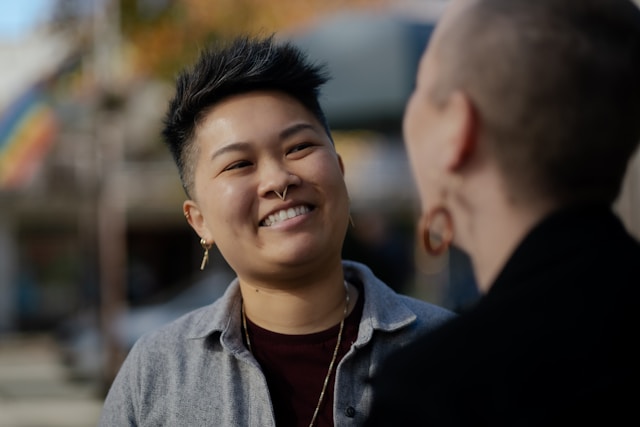
You had favourite spots, shared rituals, inside jokes, and now even your own community might feel tangled up in memories. It’s hard to know what still feels like yours when everything reminds you of them. This is the messy part of queer breakups. The overlap is real. Take your time carving out your own corner again. It might take a bit, but it’s worth it.
6. People might not treat your breakup like a “real” one.
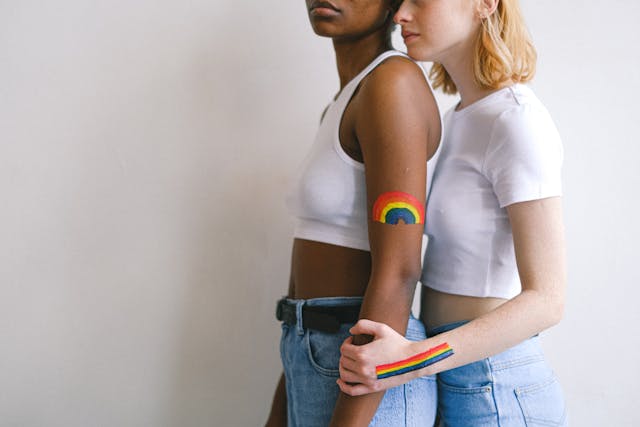
If your relationship wasn’t traditional or didn’t have a neat label, some people might downplay it, like it doesn’t count as real heartbreak. That kind of response stings, especially when you were deeply invested. You don’t have to justify your grief. The shape of your relationship doesn’t have to fit into anyone else’s definition for the loss to be valid.
7. You feel guilty for not “setting an example.”

There’s this quiet pressure to show that queer love works—to be the couple that proves it can last. So when it ends, it’s easy to feel like you’ve let down the whole community, even if no one says it out loud. But here’s the thing: success isn’t just about staying together. Sometimes it’s about knowing when to let go, and doing that with honesty and care matters just as much.
8. Breakup advice doesn’t always feel relatable.

Let’s be real—most mainstream advice still assumes straight dynamics. You might scroll through breakup tips and feel like none of it applies. Or worse, it erases parts of your identity completely. It’s frustrating, but you’re not alone. Look for queer-specific spaces where your experience is actually reflected. It makes the healing feel less lonely.
9. You care about them even if they hurt you.

When you’ve shared something intimate, especially in a marginalised identity, it’s hard to completely shut off your empathy. You might still feel protective of them, even when you know you need distance. This doesn’t make you weak; it makes you human. Just make sure your compassion doesn’t come at the expense of your boundaries.
10. It’s harder to cut ties when the queer scene is small.

Maybe they’re dating someone new… who’s also in your group chat. Maybe your best mate is still friends with them. It’s messy, but in tight-knit spaces, it’s sometimes unavoidable. Don’t feel pressured to act chill if you’re not. Set limits. Say no to certain invites if you need a breather. Protecting your peace is more important than performing gracefulness.
11. You still want them to be okay, even though you’re hurting.

You might catch yourself checking their socials, worrying if they’re struggling, or hoping their new situationship treats them well. It’s confusing, wanting them to be happy while still feeling wrecked. It’s totally normal to hold both. Just don’t let concern for them keep you from healing yourself. You’re allowed to come first now.
12. You miss the version of you that existed with them.

Sometimes it’s not even them you miss—it’s how you felt when you were with them. Maybe you felt braver, softer, funnier. It’s hard to lose that version of yourself when the relationship ends. However, that version of you isn’t gone. It was always you. They just happened to reflect it back. You get to keep those parts and grow them in new ways.
13. The grief shows up weirdly late.
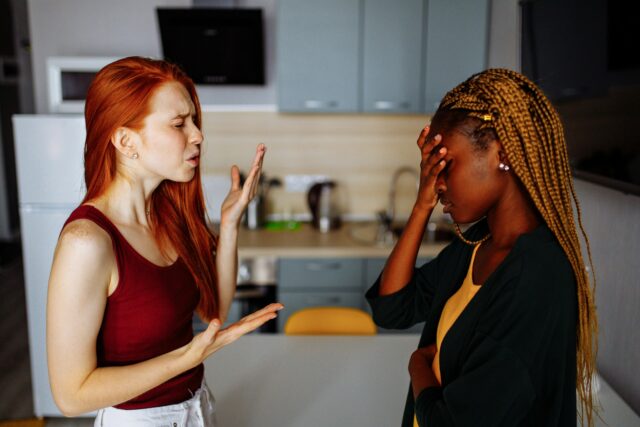 Source: Unsplash
Source: Unsplash Maybe at first, you felt weirdly fine. Then suddenly, three months later, it hits you like a truck. Or you’re crying over a song that meant nothing two weeks ago. Queer breakups don’t follow neat timelines. Let the feelings come when they come. There’s no wrong pace. You’re not broken—you’re just unraveling something that mattered deeply.
14. You’re still figuring out how to be queer without them.

When someone’s been your mirror, your hype person, or part of your coming-out story, being without them can make you question your place. You might feel a little disconnected from your identity for a while. This is temporary. You’re not less queer just because your relationship ended. You’re still valid, still whole, and still moving forward—maybe even more grounded than before.

